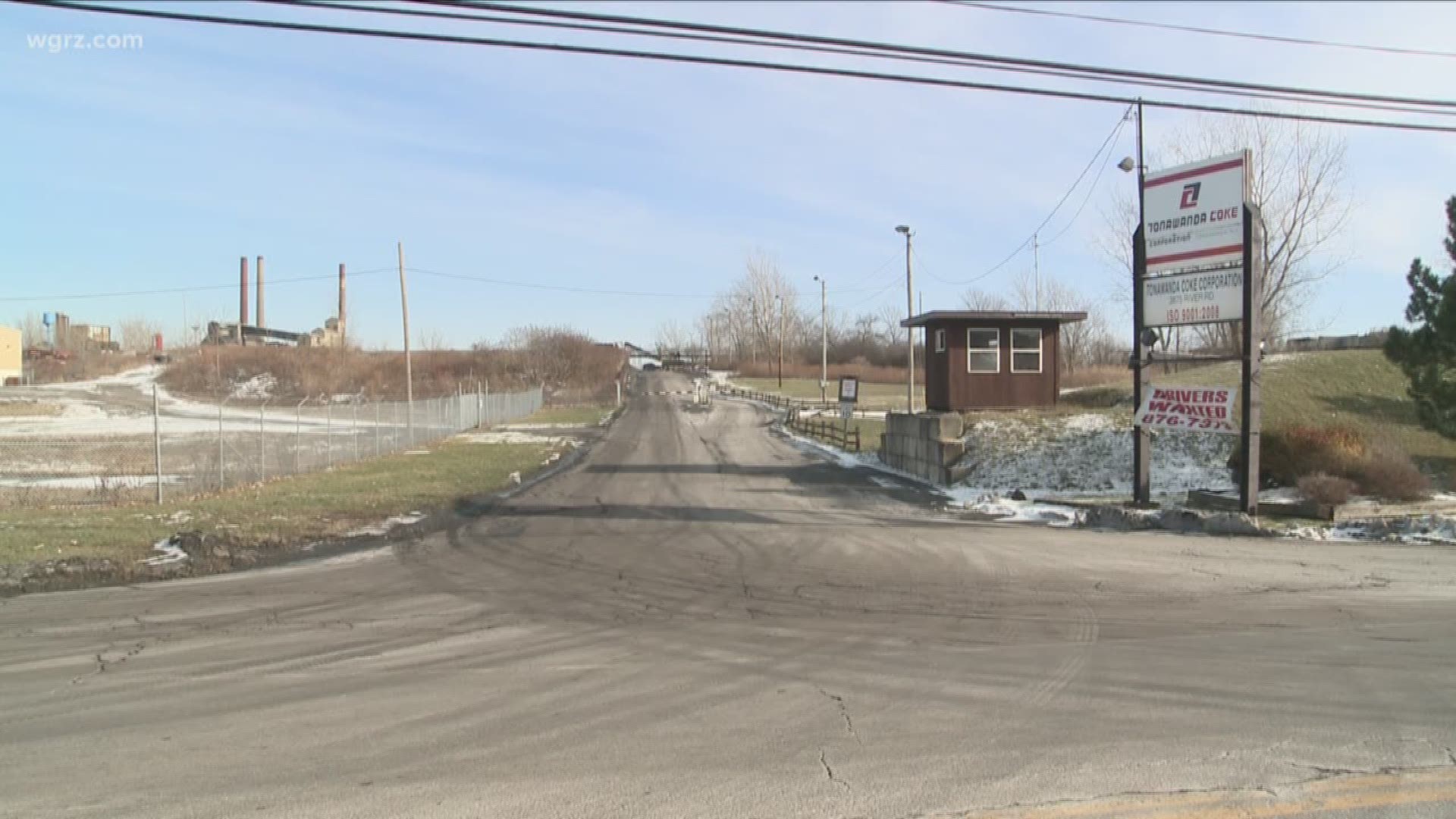TOWN OF TONAWANDA, N.Y. -- Tonawanda Coke confirmed Friday night that a tunnel partially collapsed on its property sometime this spring.
2 On Your Side first learned about this when an environmental group went to the media Friday about it.
Tonawanda Coke has made headlines before most notably in 2014 when OSHA fined it after an explosion at the plant injured workers. And in 2015, Tonawanda Coke agreed to pay $12 million in penalties for violating the EPA's Clean Air Act.
Friday, the Clean Air Coalition of Western New York contacted the press after it says a former employee at the plant told its members about a partial tunnel collapse.
Tonawanda Coke told 2 On Your Side the waste heat air tunnel that goes from the battery to the battery stack partially collapsed this spring and debris created a dam that restricted air flow in the tunnel. The company says this caused the temperature to drop in the tunnel and battery stack.
The Clean Air Coalition thinks the company isn't giving the public important information.
"So, all we knew is this morning we got contacted by a former worker at the plant who let us know that the tunnel collapsed. Certainly, I think the public should know about this as soon as anything happens, and that's why we're calling on DEC to do a full investigation to figure out when this happened and what happened and why," says Brian Borncamp with the Clean Air Coalition of Western New York.
Tonawanda Coke told 2 On Your Side it anticipates having debris removed by next week.
The DEC got back to us Monday morning with this statement:
RESPONSE FOR ATTRIBUTION TO NYS DEC
The New York State Department of Environmental Conservation (DEC) is thoroughly inspecting this facility and directing the Tonawanda Coke Corporation (TCC) to provide additional information about this incident, including the results of environmental control devices, to evaluate the extent of the damage and the nature of required repairs. DEC is reviewing data from nearby air monitors. While DEC’s investigation is ongoing, our current assessment is that this incident is contributing to the excess smoke that has been observed from the waste heat stack.

